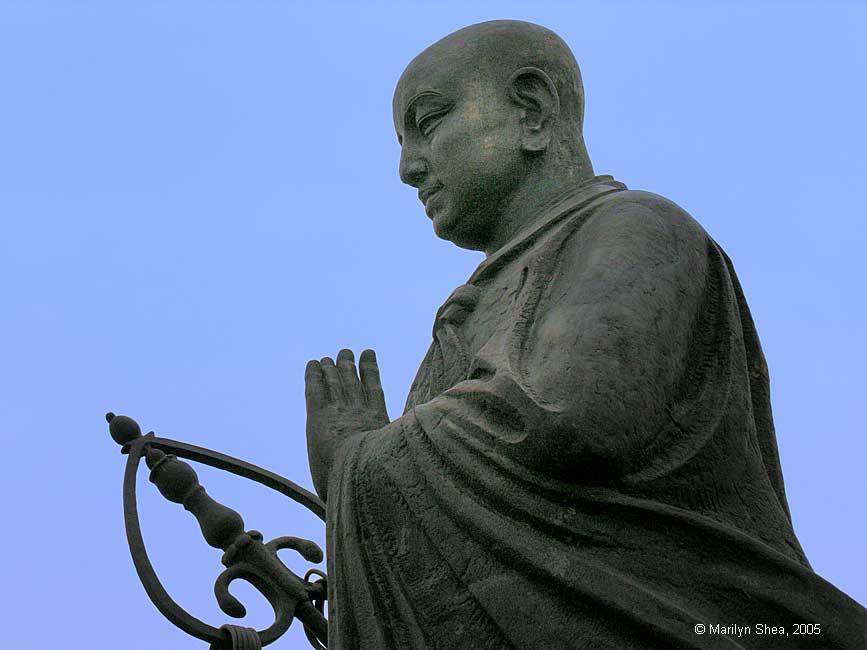But with regard to the rules of politeness observed between the prince and his subjects, between superiors and inferiors, and with respect to laws and literature, the land of "the lord of men" is greatly in advance. The country of "the lord of elephants" is distinguished for rules which relate to purifying the heart and release from the ties of life and death; this is its leading excellency. With these things the sacred books and the royal decrees are occupied. Hearing the reports of the native races and diligently searching out things old and new, and exarnining those things which came before his eyes and ears, it is thus he (i.e., Xuanzang) obtained information.
Now Buddha having been born in the western region and his religion having spread eastwards, the sounds of the words translated have been often mistaken, the phrases of the different regions have been misunderstood on account of the wrong sounds, and thus the sense has been lost. The words being wrong, the idea has been perverted. Therefore, as it is said, "it is indispensable to have the right names, in order that there be no mistakes."
Now, men differ according to the firmness or weakness of their nature, and so the words and the sounds (of their languages) are unlike. This may be the result either of climate or usage. The produce of the soil differs in the same way, according to the mountains and valleys. With respect to the difference in manners and customs, and also as to the character of the people in the country of "the lord of men," the annals sufficiently explain this. In the country of "the lord of horses" and of "the lord of treasures" the (local) records and the proclamations explain the customs faithfully, so that a brief account can be given of them.
translated by Samuel Beal (1884)
The full text is available at the University of Washington.
